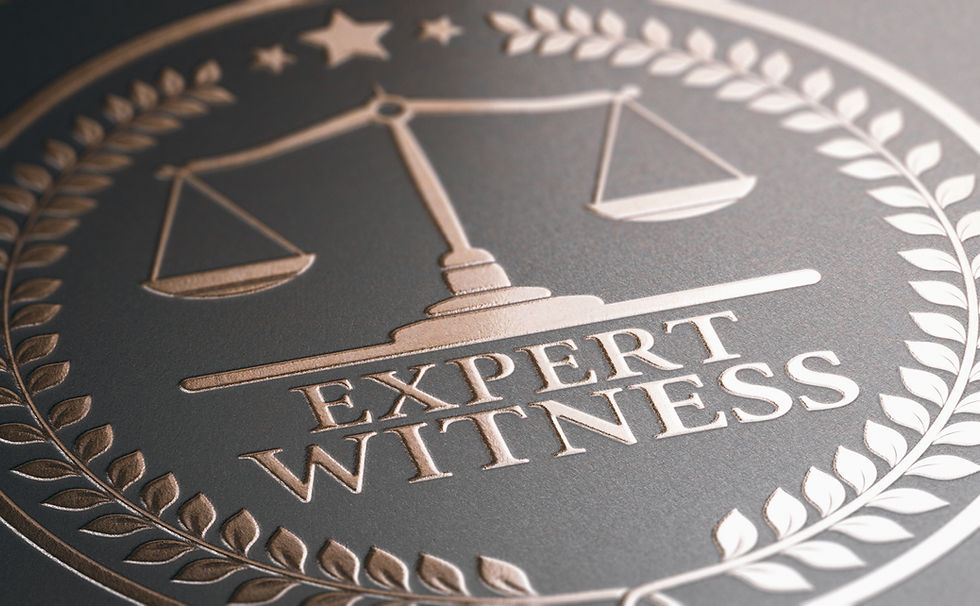Physician Side Gigs
- Danielle Marshall
- Jan 17, 2023
- 3 min read

If you're a doctor and you want a fun, lucrative side gig, look no further. I am talking about becoming a medical expert witness. A lot of doctors do this as a side gig, and it can be quite profitable. But before you agree to take the witness stand, there are a few things you ought to think about first.
Can any doctor testify as an expert?
Okay, let's start with the bad news. As a rule, medical residents do not work as expert witnesses. This is because the courts require medical witnesses to be experts, which essentially means board certified in a specific specialty. However, there are a few exceptions. Some doctors can show they know enough about a subject even if they don't have board certification. But I'm willing to bet that almost all of those who have gray hair.
To summarize, in order to be considered a credible medical expert witness, a person must typically hold both board certification in the relevant specialty and an unrestricted license to engage in the practice of medicine.
This means that an orthopedic surgeon cannot testify in a case involving a birth injury unless he or she has acquired extensive knowledge in obstetrics through their practice.
What do medical expert witnesses do?
Medical witnesses look at the facts of a case and say what they think about them from a medical point of view. A hospitalist, for example, might look at a patient's chart to see if the standard of care was met.
Personal injury and medical malpractice cases are two of the most common types of litigation in which medical expert witnesses are called upon to testify. Med-mal cases can be awkward because medical experts are being asked to judge the actions of their peers. I think this is one of the main drawbacks of this kind of work.
Another thing to think about is how stressful it can be to be an expert witness, especially when it comes time to testify. On the other hand, most doctors are already accustomed to fielding difficult questions, thanks to their patients, their patients' families, and the overly enthusiastic chief that they had during their residency.
Some examples of what you might do as a medical expert witness are listed below.
Review a case before it becomes a case. Court cases are very costly, so plaintiffs and their lawyers need to be confident they have a good chance of winning before proceeding. Therefore, medical expert witnesses are frequently called upon to provide their opinions on the merits of a potential case in order to assist the parties in determining whether or not it is worthwhile to pursue the matter further. Simply by looking into a case, you may be able to save people the needless hassle and expense of going to court during a period of their lives when they are already experiencing a great deal of stress.
Chart review. You could be hired to sift through hundreds of medical records in search of medical error or evidence that a doctor was not at fault. Even though it is a tedious task, it actually has the potential to help you become more skilled at charting, which is a nice perk.
Statements and visual aids. Typically, medical witnesses must submit their findings in writing. They may also be tasked with making models and other kinds of visual aids that can be used in court to make a particular point. These models and aids can be used to demonstrate something. This can be an excellent way to break free of the monotony of your daily note writing while at the same time really thinking about how to communicate medical information in a clear and concise manner.
Testify in court. We all think of this when we hear the words "medical expert witness." You should know right away that when you testify, people on both sides will ask you a lot of questions. Some of the questions can be pretty uncomfortable, like if the other side tried to discredit your testimony by attacking your credentials. On the other hand, your testimony might be all that a jury needs to decide the right thing.
Do you get paid to be an expert witness?
Unlike lay witnesses—like someone who saw a car accident firsthand—expert witnesses almost always get paid for the work that goes into preparing their testimony. Many physicians charge about $500 per hour for this type of work. So if you spend 10 hours on a case, you’ve basically just earned yourself a 10-day vacation for the whole fam. At least from the financial side of things, this is a physician side gig that’s tough to beat.




Comments